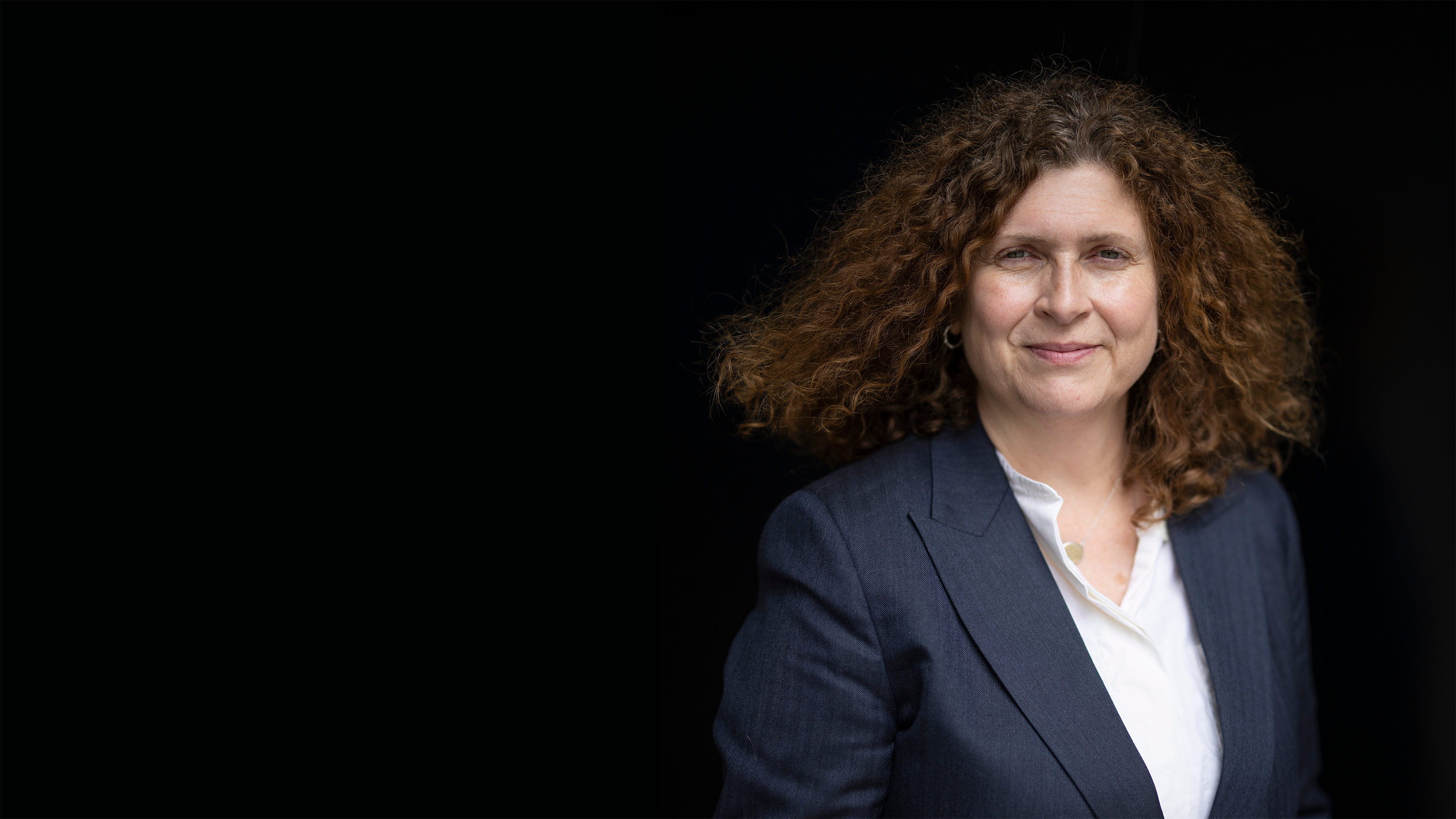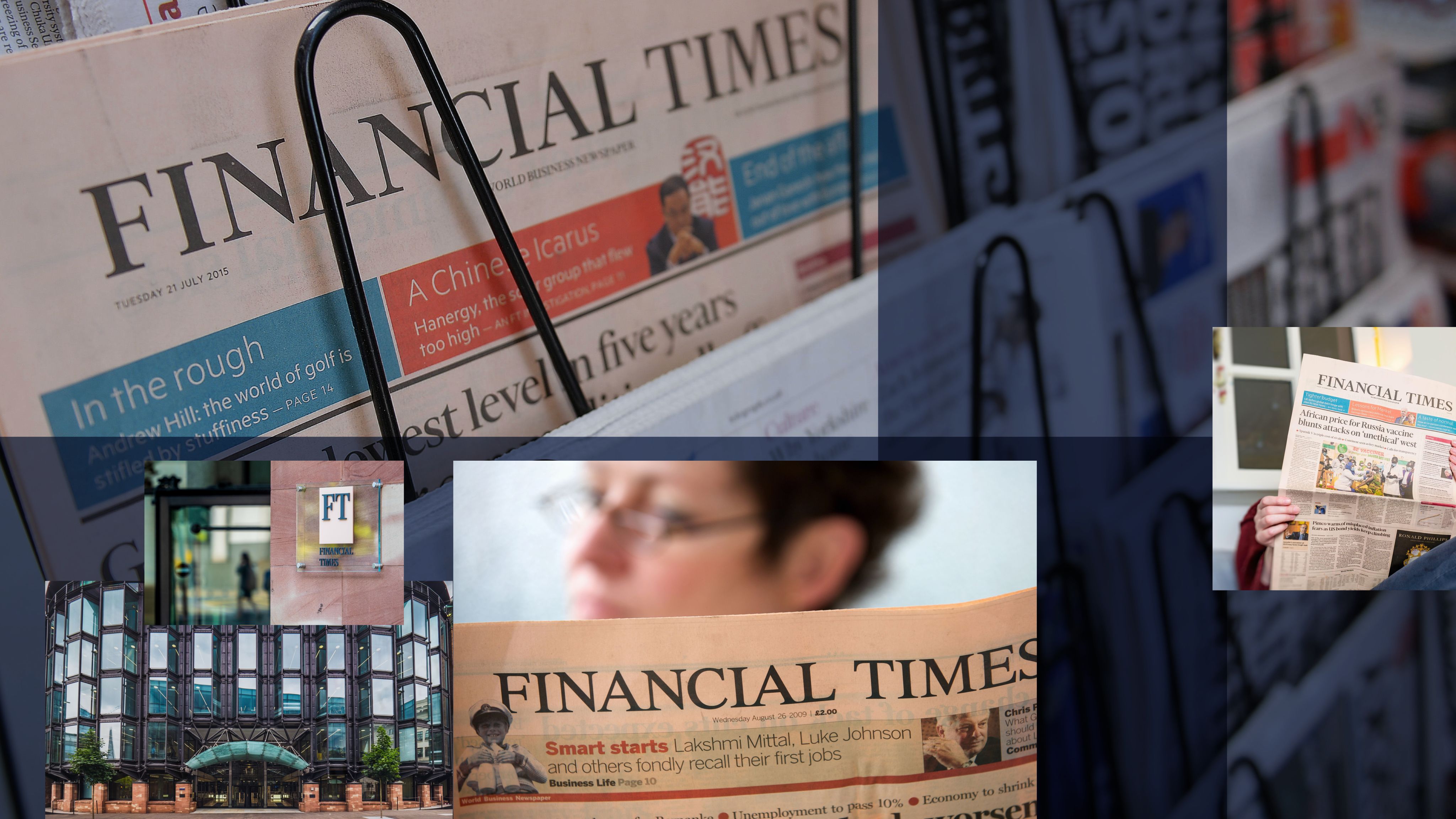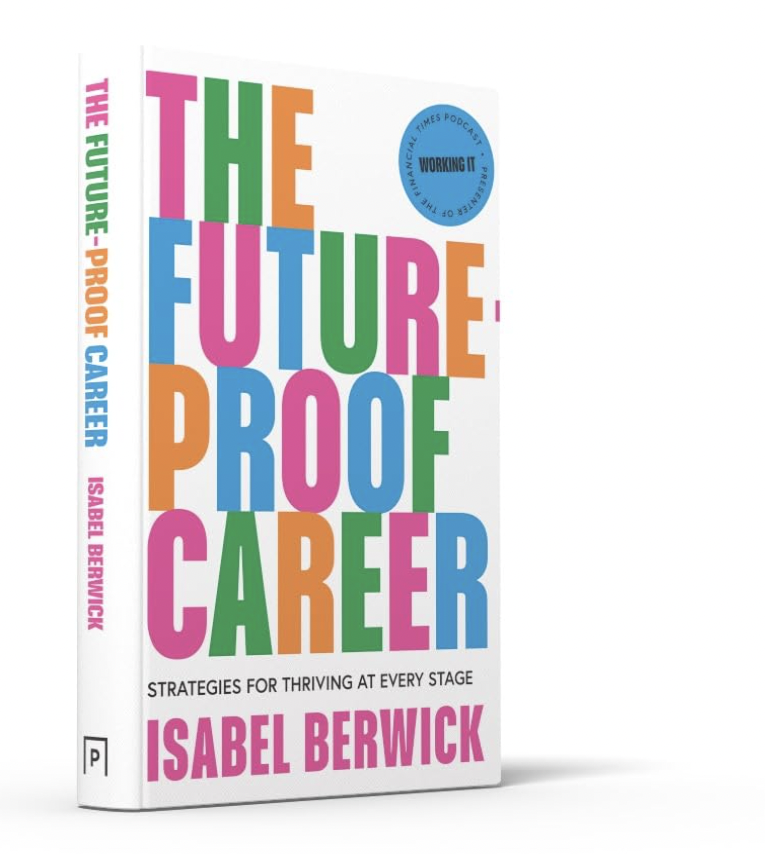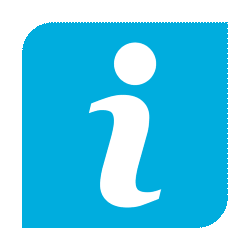The way
we work

The way we work

From AI to EDI, from Gen Z to 50-year careers, writer, podcaster and author Isabel Berwick talks to Ryan Herman about the employment landscape of the future
“Every billboard from the airport to San Francisco is about AI. The taxi driver, said to me, ‘They’ve just replaced all the crypto billboards, right?’”
Journalist, author and podcaster Isabel Berwick is speaking about her recent trip to Silicon Valley, during which she was granted access to some of the world’s biggest and most influential companies to examine how they function.
She was there to learn about the latest work trends – what happens in America will usually come to Britain – for the Working It newsletter and podcast (which has had over 2.5 million downloads) she produces for the Financial Times, the paper she has been with since 1999.
“We were in big companies like Microsoft, LinkedIn and Salesforce and what surprised me was the extraordinary level of staff benefits,” she says. “And where these companies lead I think others will follow. They take care of their staff – the free food, for example, is extraordinary. The office environment is extraordinary. And I think they are on to something – although it might take five years to come to the UK – because younger people job-hop more.
“And employers are getting much more interested in individual employee benefits packages. So personal coaching is a big trend. You don’t just get a one-size-fits-all package of benefits like health insurance or free food.
“The younger generation are quite transactional. They’re saying, ‘I’m in a corporate and I’m giving up a lot of flexibility and autonomy. So what is it that I can get back?’ And what a big employer can do is pay for your training, for upskilling, and that does engender more loyalty.”
Berwick is also the author of The Future-Proof Career, which came out earlier this year. It may not sound like the most obvious choice for a Christmas gift, but the recipient could end up feeling more grateful than they would for a bottle of whisky.
“When I did this synopsis, I realised that there are a lot of niche books around about business or management or leadership,” says Berwick. “But I wanted to do one that covered everything, so you don’t have to buy 10 books. It’s got lots of quite practical tips and I think it helps you to work out if it’s time to move, or what your ambitions are.
“Among the best reactions I’ve received are people who messaged me to say they left their jobs. They realised they were working in an environment that wasn’t right for them, or one that was actively toxic. I’m asking people to ask themselves some questions and see how their working life is working for them.”
Four-letter words
For many years, and for many people, work was a means to an end, a four-letter word undertaken to ensure we could worry less about other four-letter words, such as “roof” or “food”. Jobs were, if not always for life, at least typically for a good few years. There was also the knowledge that if you became qualified in certain professions – accounting being one obvious example – you would always be employable.
Then the internet happened.
“When I started work, we didn’t know anything about any other jobs apart from what friends did,” says Berwick. “We were working in a vacuum, and that did keep people in their jobs longer. So yeah, the internet has been transformative in terms of allowing people to see what’s out there.
“Certainly 20, maybe even 10 years ago I would not have considered writing this book.”
Education
Studied English at University of Oxford and earned a master’s in Hispanic studies at Birkbeck
1990
Joins Haymarket medical publications as graduate trainee
1994
Appointed Assistant Editor of Moneywise magazine
1998
Moves to Independent on Sunday as Personal Finance Editor, then Business Editor
1999
Joins Financial Times initially as a writer, becoming Assistant Editor, Life and Arts in 2008, moving to Comment and Analysis in 2015
2018
Appointed Editor, Work and Careers, and launches the Working It podcast

Now, as we head into 2025, work is a topic that often dominates our thoughts, but one that is also creating anxiety at both ends of the work generation spectrum. We’ve got Gen Z worrying whether current jobs could be swallowed up by AI, and at the other end we have an abundance of talented, experienced people coming up against algorithms stacked with bias and ageism.
The recruitment agency Indeed recently published a graphic setting career stages by age: 21–25 is the “exploration” stage; 35–45 is “mid-career”, while the over-55s are in “decline”. It prompted understandable outrage and a swift apology from the company.
But, Berwick says, the tide is turning: “We’re just at the very beginning of that change curve, but I think there are companies that are starting to value what older people bring, and it hasn’t been helpful that in professional services people often have to leave at 60 whether they like it or not. Which, of course, is something that has been applied to [senior partners in] accountancy. Another problem is so many recruiters are in their twenties and thirties. We need more older recruiters.
“A big trend is un-retirement. People who’ve had well-paid professional careers retire because they’ve got all the money they need. They build an extension, play golf, maybe do yoga, whatever it is they’re excited by – and then they realise they’re bored and they go back into work. There are many more opportunities for that now, and I think that is going to be a growing segment of the workforce.
“It is less pressure for employers, because they’re taking people on probably at a level below where they were before. But [the employee] doesn’t mind – they’re enjoying it, they have connection, they’re with peers, and it allows older people to give a kind of mentorship back to younger staff. Also, there is the talent shortage – there aren’t enough Gen Zs coming into the workforce.”
All inclusive
One could also argue that if companies want to practise what they preach in diversity and inclusion, they should consider age. Instead, it has become an increasingly divisive issue, although it’s one Berwick says is here to stay.
“Whenever I do an event it’s what people ask me about the most, often off the record,” she says. “I think we can probably say that a lot of what’s gone on in the past five years hasn’t really achieved enough. Why is that? Because, at its heart, with this term ‘inclusion’, it hasn’t actually included everybody. It has excluded quite large groups of people, the biggest of which is probably older white men.
“EDI [equality, diversity and inclusion] isn’t going to end, but I think it’s going to be much more about transparent promotion, about upskilling, about making sure that management is fair and unbiased in a way that is across the board.
“There was a recent study from Columbia [University] which showed that leadership in the US and the UK has moved on, they are generally more progressive than they were 20 years ago. It’s not virtue signalling or ‘woke mind virus’. It truly is a demographic shift, and that will be reflected in our workplaces.
“Amanda Edelman, who runs the Gen Z department at Edelman PR, said to me that our worries about Gen Z are also our older-person worries about the changing nature of the world, essentially. We’ve always had concerns about the younger generation coming in – Victorian books are full of young so-and-sos that can’t do their job.
“I take my hat off to Gen Z. I had some appalling bosses, but I didn’t squeak. They’ve got the right idea, because they will speak up”
“But Gen Zs are different. They want to do purpose-driven work. They want it to be fair, they want it to be transparent. If you’re a good employer, you have nothing to worry about. But I cannot deny that a lot of workplaces are really struggling to integrate their younger colleagues.
“I take my hat off to [Gen Z], though. I had some appalling bosses, but I didn’t squeak. They’ve got the right idea, because they will speak up.”
Many Gen Zs entered the workforce during Covid, a time when first working from home, then hybrid working, was the norm. Currently, though, every day seems to bring a new headline about a company expecting employees to spend more time at work.
Salesforce Park in San Francisco
Salesforce Park in San Francisco
As Berwick explains in her book, being visible in the office could be a deciding factor in getting a promotion. “What I often say to people is, if you’ve got a mandated Tuesday-Wednesday-Thursday in the office, which is quite common, if you come in on a Monday or a Friday, you might have more chance of a chance encounter with a senior person, because there’s fewer people around. So think strategically about being seen.”
There are other issues coming into play in the relationship between employer and employee, such as the ability for bosses to check what workers are doing online. (This appears in The Future-Proof Career under the heading “worktech”.) “The high-trust environment is one where it’s output focused,” she says. “If you are meeting your expectations in terms of what you’re meant to be doing, your manager trusts you, but there’s a massive lack of trust across the board between executives and teams.
“It's possible that AI is going to help our work-life balance, because it will take a lot of the grunt work. But I think particularly for accountants and people in professional jobs, are you going to have to get more clients? Are you going to have more meetings? That is a huge issue for corporate leaders because people are just going to burn out.
“Professions like accountancy attract the ‘anxious high achiever’. They’re particularly prone to burnout because they work so hard and they’re so good at their jobs”
“There’s a particular type of person that has a name in academic research, the ‘anxious high achiever’. And professions like accountancy attract a lot of those people. They work very hard. They want everything to be right. And they’re particularly prone to burnout because they work so hard and they’re so good at their jobs.”
So, what advice can Berwick give to improve work-life balance and decrease anxiety? “Be kind to yourself,” she says. “Your careers are long and getting longer. You might be in this for 50 years, so don’t be in a big rush. With the way the workplace is changing at the moment, don’t worry enormously about the corporate climb, because that’s an extra stress you don’t need in an already stressful world.”
Which brings us back to the subject of those San Francisco billboards, and source of anxiety for many people, professional or otherwise – AI. “When I was in Silicon Valley, I was asking people: ‘What are you doing to embrace AI?’ And they said a very simple thing is to install it on your phone. There’s one app called PI AI, another called Claude AI, and I’m trying those to see how they work,” says Berwick.
“Every time I have a professional question, I’ll ask the AI first. Start small and it can make a huge difference. Then when it comes to mass implementation in your workplace, you’re going to be much better placed.”
The Future-Proof Career (Pavilion Books, £16.99) is out now
Read more about the future of accountancy







